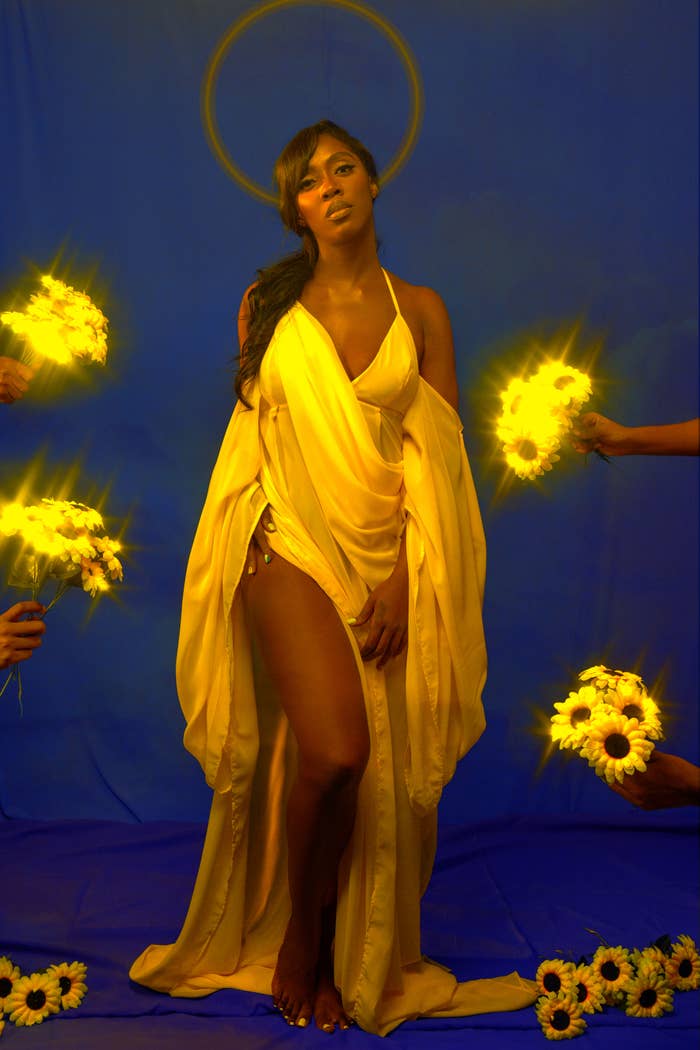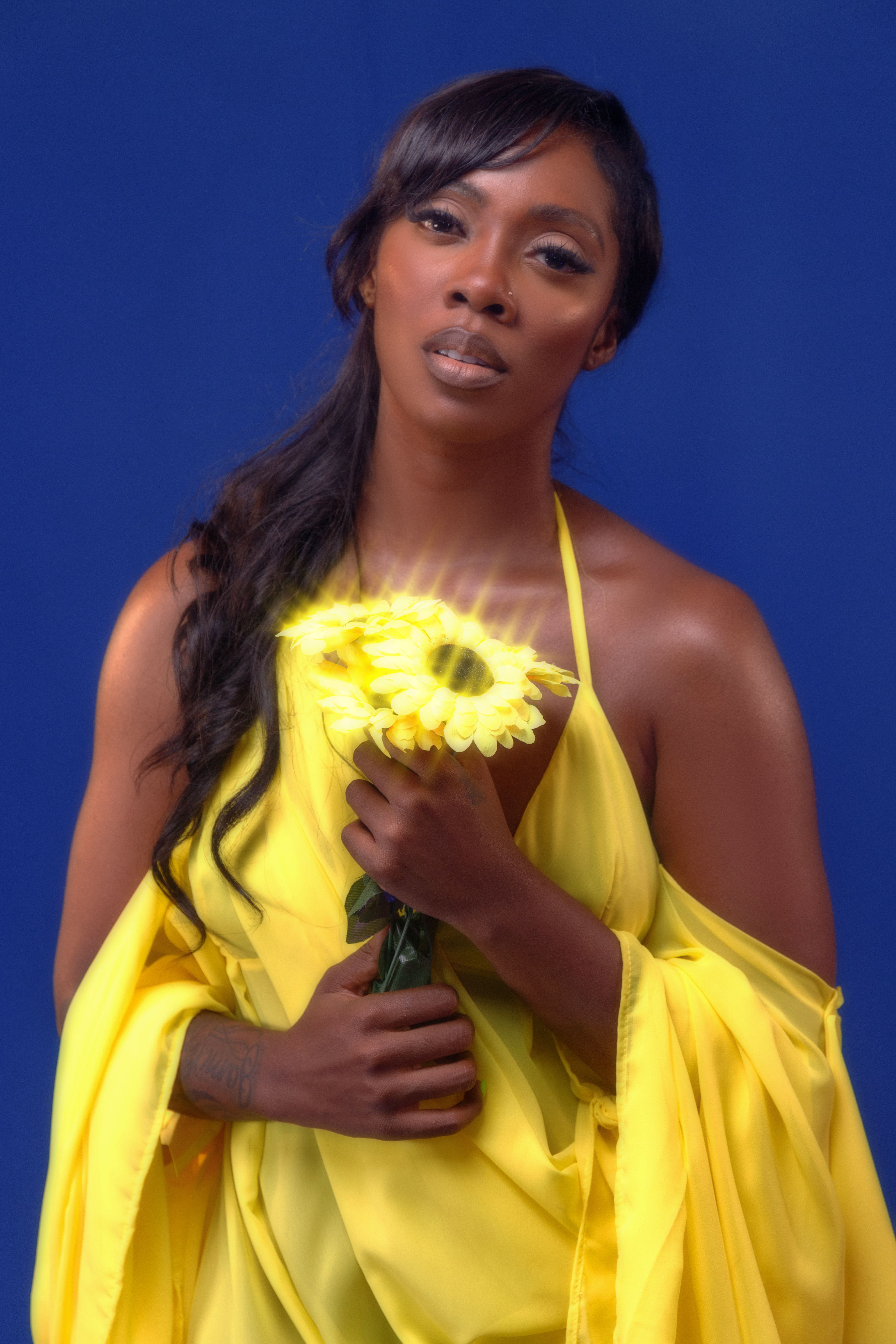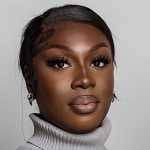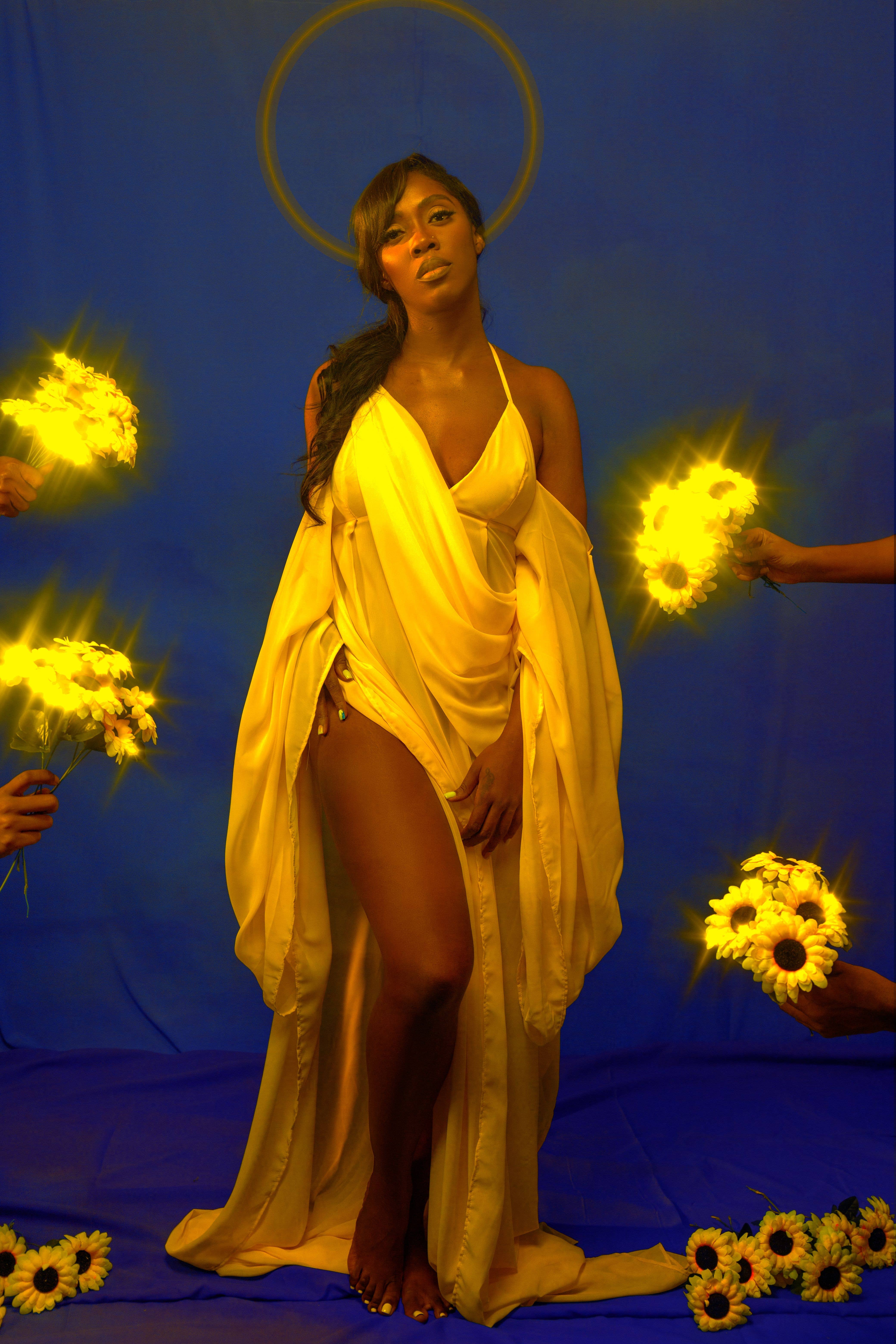
Tiwa Savage, Queen of Afropop, continues her reign.
One of the key players in helping to broaden the Afro sound globally, like true royalty, Tiwa has carried the Afrobeats scene with pure style and grace. Arguably the most popular woman within the scene, the Nigerian-born singer-songwriter sits comfortably next to fellow West African pop stars such as Wizkid and Davido. And it’s clear to see why: since emerging in the early 2010s, she has released countless hits like “Eminado”, “Ma Lo”, “Bad” and “Kele Kele Love”, to name just a few.
Migrating with her family to London at the age of 11, Savage fell in love with music early on, in school: she took extra music classes and played instruments at a serious level. But it was when she hit 15 that she found her voice. A year later, she would find herself singing background for the likes of George Michael, Ms. Dynamite, Mary J. Blige, and even Italian opera singer Andrea Bocelli. Trying her hand at the spotlight, Savage went on to appear on the UK version of The X Factor in 2006, but after not being all the way ready for the shine, she eventually found her feet in songwriting and signed a publishing deal with Sony/ATV out in the States, going on to pen songs for R&B icons like Monica, Babyface, and Mya.
Savage soon caught the bug again, and in 2013 released her debut album, Once Upon A Time, to critical acclaim. In the seven years since, she’s returned to Nigeria and dropped two more albums: R.E.D., in 2012, and the recently-released Celia. The 40-years-young talent has also performed at international festivals, including Afro Nation, One Africa Music Fest: Dubai, Wireless, and Global Citizen, taking her hybrid sound of Afropop—in both Yoruba and English—R&B, dance and reggae (with a dose of classic afrobeat) around the world.
Featuring on last year’s Beyoncé-produced soundtrack, The Lion King: The Gift, Tiwa Savage has solidified her royal status many times over and she is happy where she is today. Celia, her third studio album, is a tribute to her mother and a love letter to Afrobeats. Tiwa’s aim was to create a album full of anthems to empower women and girls in the same way that artists like Brandy did for her and, naturally, she outdid herself.
We sat down with Tiwa Savage over Zoom to discuss everything from her experience as a Black woman within the music industry, the legacy of her career and movement of Afrobeats, to her charitable AIDs and rape prevention work, Celia, and more.
“I have a platform and that platform is so huge, I can’t just use it for music. I’ve got to use it for the voiceless as well.”
COMPLEX: Tiwa! It’s great to be speaking with you today. Let me just start off by saying your new album, Celia, is amazing. It shows so much range and really mirrors the evolution of the Afrobeats sound. Out of all the tracks on the album, which are your favourites and why?
Tiwa Savage: Thank you so much! Honestly, I don’t have specific favourites. It just depends on each day. Today I might feel like it’s “Celia’s Song” and tomorrow I might be on an “Ole” vibe, so I can’t just pick one because it really depends on my vibe at the time.
Tell us the stories behind those songs you just mentioned.
“Celia’s Song” is what I imagine when my mum is praying for me, always telling me to “never give up, always be thankful and give God the glory.” I would say that’s the story behind “Celia’s Song”. Another I didn’t mention is “Us”, the interlude, which is a song about the breakdown of my divorce.
How important is it to be true to yourself and be unapologetically strong as a woman?
Very important, but it’s not easy. First of all, it’s hard being a woman and then being a Black woman, it’s like you have to be even stronger. I think it’s extremely important to value yourself, but then I also understand it’s not that easy in the society we live in, where you’re influenced by magazine covers, Instagram, and the world seems to celebrate women that look the opposite from what we look like.
That is so true. With the rise of Black movements, colourism has also become the topic of discussion. How has this impacted your road to success?
I feel like women who look the opposite of what we look like seem to be celebrated more, and it’s not just in our community—it’s all around the world; this one-track idea of what a beautiful woman is. That’s why I want to try and encourage girls that are my complexion, and try to be part of the people that change the narrative to say that Black women are beautiful! That’s why I love the songs by Beyoncé and Wizkid’s “Brown Skin Girl”. I’ll be in the clubs screaming, like: “Yes!” I see other girls in the club singing and I’m like, “Sorry, but this isn’t for you. It’s for us!” [Laughs]
You don’t get enough acknowledgement on your credits from George Michael, Kelly Clarkson, Mary J. Blige, Fantasia and Whitney, and when you balanced your education while auditioning on X Factor. As a Black woman, we have so much to prove! Black women have to fight two wars: our gender and our race. Throughout your career, what has been the most challenging moment that made you realise that you are Black?
Yes, I didn’t realise initially because I moved back to Nigeria to pursue my artistry and, at that point, it was more like, I’m a new artist, trying to get my foot in the door. So when I eventually felt like I had my foot in the door... I’m trying to build my brand and then I would get different challenges. I would think, “Is it because I’m Black or a woman, or both?” And it was at that point I realised how hard it is. I always have to work twice as hard; you have to keep fighting all the time and you just feel like you'’e not rated as much. But it’s not to complain or whine about. Life isn’t fair; well, that’s what my mum says. Whatever it takes for you to get where you want to get to, you have to do. It’s not a race, it’s a marathon, and it’s about finishing strong.
Celia is named after your mother. In three words, describe your mother and how she inspired this album.
My mum in three words? She is reserved, strong and hardworking. I wanted to do an album full of female anthems that girls would love because that’s how Brandy made me feel, so I wanted to make someone else feel like that through Afrobeats. When I was creating it, I was thinking about celebrating women—strong women, women who are powerful, who are vulnerable, who are sexy, bossy or whatever. I wanted a name for the album that could embody all that and I could only just think of my mum. I also wanted to pay homage to her for just supporting me for so long.
When did you fall in love with music?
Well, I was always surrounded by music, but I do remember when I first heard “I Wanna Be Down” by Brandy. At that point, I was like: “This is so great! This woman is amazing!” Her tone and her vibe was just wow. She was so young when she started and what she’s achieved is just incredible. I think I fell in love with R&B when I heard Brandy.
“I feel like all genres from around the world originate from Africa.”

The COVID-19 pandemic has completely transformed how listeners consume music. Did you at any point worry about the impact this could have on your output?
Yeah, I think everyone thought the lockdown was going to affect them; not even just musicians, but everyone in general all across the world. We couldn’t leave our house or anything for weeks, and I felt that. But I just thought of different ways to continue to communicate with my fans. So I was engaging with a lot more IG Lives, and then when I had different performances or opportunities that I had but couldn't be there physically—for example, the Jimmy Fallon show, I had to make sure that even though I was missing out on being there and being in front of the studio audience, my performance was iconic and memorable. We’re all just trying to adapt to this new world.
How has travelling and living in different parts of the world shaped you into the woman and artist you are today?
That’s a great question. Nigeria, I think that’s where I got my spiritual grounding because African parents are very spiritual. I also think I got my good manners from there [laughs]. London, I think that’s where I fell in love with music; that’s where I got into Aaliyah, Brandy and the Spice Girls. Yes, I’m a huge Spice Girls fan and I’m not ashamed [laughs]. In Nigeria, my dad would play Fela [Kuti] and King Sunny Ade, and when I got to London I was listening to more western music. Then when I got to the States—funnily enough, that’s when I appreciated being Black because, when I was in London, I was teased as an African. It wasn’t cool to be that. But when I went to America, I’d be like: “Hey, chocolate!” When you’re African, they’d ask things like: “What do you listen to? Fela Kuti?” My reply would always be: “Yeah, he’s my uncle… I’m just kidding!” [Laughs] I used to joke that my dad was a king in our village, or that everyone’s royalty in Nigeria. It just made me love who I am and just being a Black queen.
Many have crowned you the Queen of Afrobeats, and rightly so. Does having a title like this carry a lot of pressure?
Yeah, but it’s good pressure because I always just want to excel and make my fans feel great. You know, when someone gives you that kind of title, it's like I always want to impress them and do better than I did last time. I want them to be proud to say they’re Savage Soldiers or fans or supporters of Tiwa Savage.
What made you want to expand the Afrobeats scene back in Nigeria, rather than continuing your work in the States?
I didn’t, actually. My brother and a lot of people used to tell me that I needed to come back to Nigeria, and I would just be like, “No! I want to be an R&B singer in America. Like, hello!” When I was living in LA, I was songwriting, and I would go into different studios and they would ask me where I’m from and when I said Africa, they were always fascinated, asking me questions about what my names mean, about rhythms, and then I started listening more to what was coming out of Nigeria. So I was hearing a lot of P Square, D’banj, and 2Face. I was just like, “Woah! The music is growing.” But I didn’t see that many women, so I decided that I’d go back to Nigeria and give it a try. I wanted to try and fuse Afrobeats with R&B, two sounds that I love, and see if it works. I recorded my first song, “Kele Kele Love”, and when I put it out, all the girls were like, “Yes! Finally!” So it was great but, initially, I didn’t want to move back.
Your work outside of music doesn’t go unnoticed. As an activist, you’re devoted to H.I.V/AIDS prevention and combating rape culture in Nigeria. What created this drive to raise awareness on those issues?
Well, I didn’t plan to—it was actually during lockdown. There were a few incidents that happened with young girls being raped, or being abused or shot at; one of them actually passed away and it was trending out here in Nigeria. It was crazy to see some people saying, “What was she wearing?” and “How did she get raped?” I was so disgusted by the comments and I was just tired of hearing all the cases. Normally, when outside is busy, you might miss certain things happening around you, but because everyone was on lockdown, it was time to focus on what was going on. And it hit me. I was tired of seeing these bad things happening. I just started ranting online about it, then I saw it was trending and then people started sending me more horror stories and more horror stories that didn’t make it to be a hashtag or a trend. I just felt like I can’t just say something on Twitter and leave it. I have to follow it through because I have a platform and that platform is so huge, I can’t just use it for music. I’ve got to use it for the voiceless as well.
Back to the music, with the current wave of Afro-fusion spreading across the UK and over to the States, do you think this could bridge the gap between us once and for all?
I think it’s being appreciated by more than just the Africans in the diaspora who are requesting it on radio, who are going to the parties and telling the DJs “if you don’t play Afrobeats, we’re not buying any bottles.” [Laughs] Some people working in department stores, like Selfridges, they’re slipping in Afrobeats on the playlist and you’re walking into Harrods and you’re hearing these songs. So it’s growing and other people who are not Africans are starting to appreciate it because I feel like all genres from around the world originate from Africa. Now, in terms of “culture vultures”, it depends on who exactly. If you think there’s one person that may have had that reputation, then I might look into it and agree. I know there were conversations around The Lion King: The Gift album. Now I am not saying this because I was part of the project, but I just don’t think you can steal what’s yours. Beyoncé is an African-American woman. She’s positively using her platform to highlight African creatives, artists, culture, and she did an iconic piece. So I feel like we should all just celebrate each other as opposed to adding more of a divide, which is what happened initially with slavery. This is the time to come together.
Where do you see Afrobeats in the future?
I would love to see it as one of the best, biggest genres in the world, like hip-hop is right now. That would be amazing if Afrobeats ended up being like that, and I think it can be.
Your legacy is already set in stone, but what would you like your legacy to represent in years to come?
I would want little girls to just study Tiwa Savage and know that she was just like them: this young girl who had a vision from Africa, who didn’t take no for an answer and conquered the world through her gift. So if she can do it way back then—I don’t know how far in the future we are talking about—but if she could do it then, I can do it and do even more.

